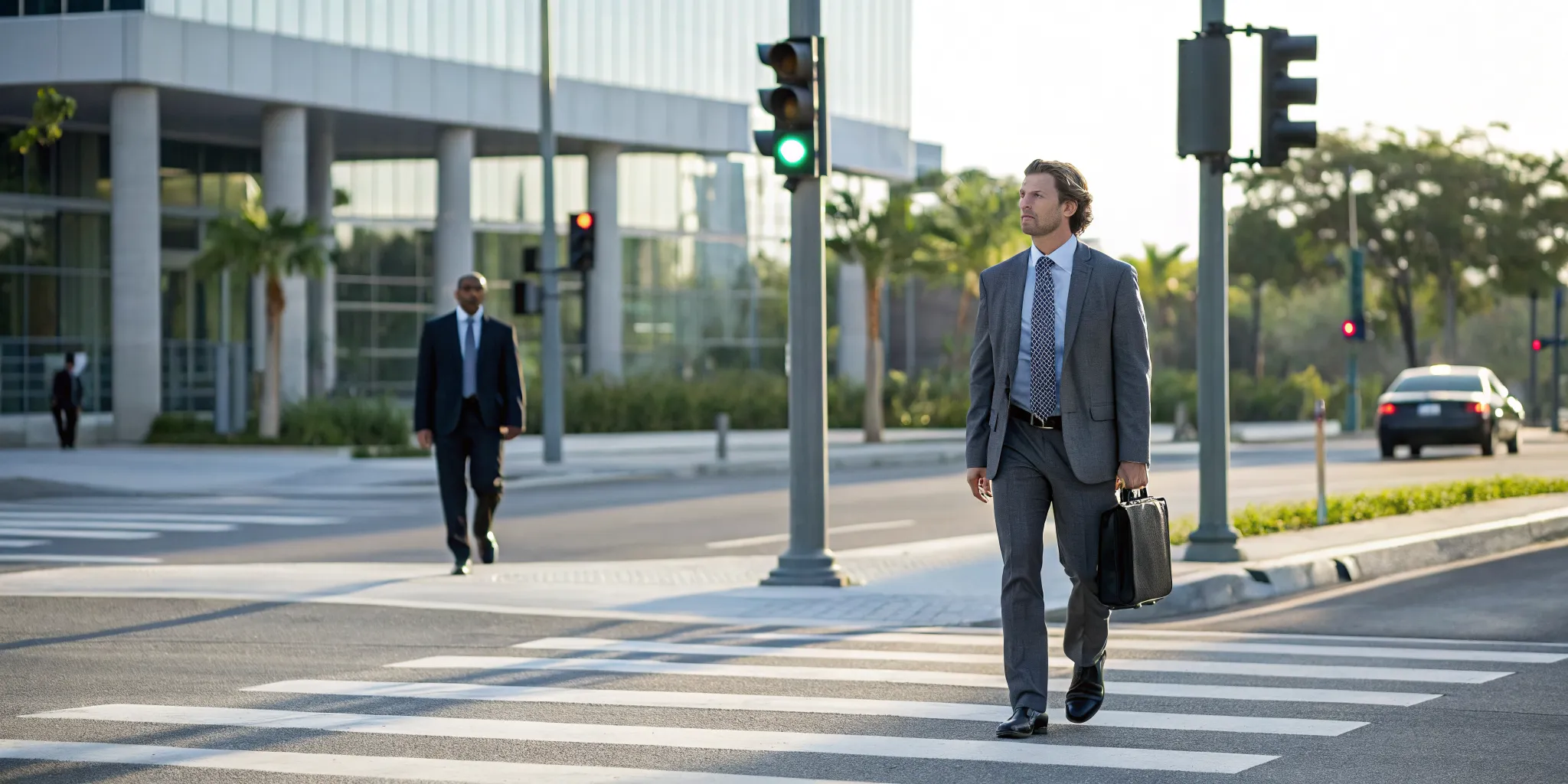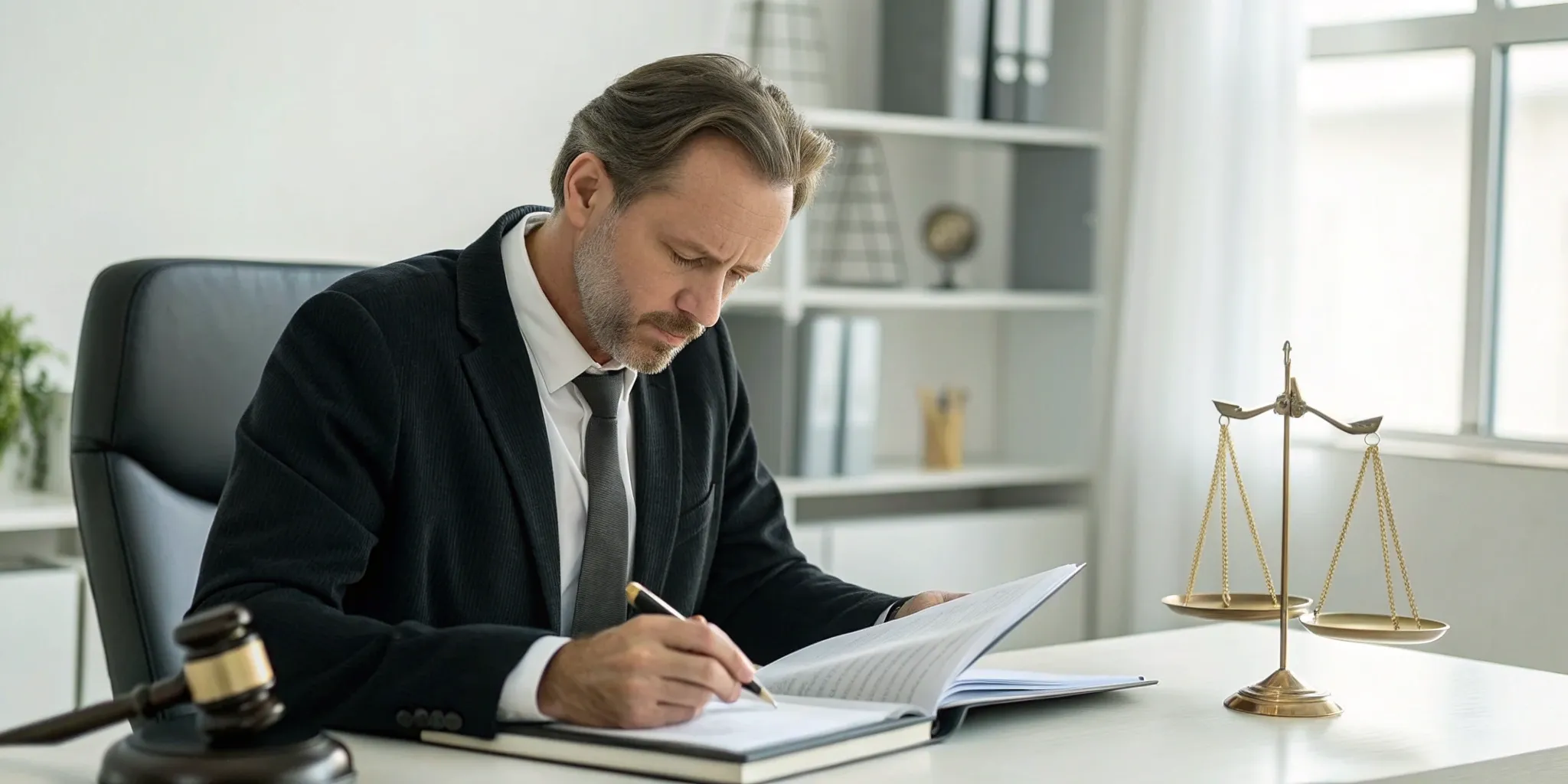When an elderly person is harmed, it’s a deep betrayal that demands more than just an apology—it demands accountability. Pursuing legal action is about securing justice for your loved one and ensuring that the people or facilities responsible are held to account for their actions. An elder abuse attorney does more than just seek financial compensation; they fight to expose negligence and prevent others from suffering the same fate. By building a strong case, they send a clear message that mistreatment of our elders will not be tolerated. This guide will cover how to build that case, the types of evidence you’ll need, and how the legal process works to restore a sense of safety and fairness for your family.
Key Takeaways
- Trust your instincts and document everything: Elder abuse can be physical, financial, or emotional. If you suspect mistreatment, ensure your loved one is safe and start documenting all observations, injuries, and conversations, as this evidence is crucial for building a case.
- A specialized attorney is your essential partner: Navigating an elder abuse claim is complex, but you don’t have to do it alone. The right lawyer will manage the entire legal process, from investigation to negotiation, allowing you to focus on your family’s well-being.
- Your active participation strengthens your case: A successful outcome depends on a strong partnership with your legal team. By providing organized documents and maintaining clear communication, you play a vital role in securing justice for your loved one.
What Does an Elder Abuse Attorney Do?
An elder abuse attorney is your family’s advocate when you suspect a loved one is being mistreated. It’s a heartbreaking situation, and it’s completely normal to feel overwhelmed and unsure of what to do next. These specialized lawyers step in to handle the legal complexities, allowing you to focus on your family member’s health and safety. Their job is to investigate the situation, stop the abuse, and hold the responsible parties accountable—whether it’s a negligent nursing home, an in-home caregiver, or even another family member.
They work to secure justice through the legal system, fighting for compensation that can cover medical bills, ongoing care, and the pain and suffering your loved one has endured. Think of them as a dedicated partner who will stand up for your loved one’s rights and dignity. They manage the entire legal process, from filing claims to negotiating with insurance companies, so you don’t have to face it alone. The ultimate goal is to ensure your loved one is safe, cared for, and has the financial resources needed to recover and live comfortably.
Types of Elder Abuse Cases
Elder abuse isn’t always as obvious as a physical injury. It can take many forms, and an experienced attorney knows how to identify each one. While they handle clear cases of physical or sexual assault, they also manage more subtle but equally damaging situations. This includes emotional abuse, like yelling, threatening, or isolating an elder from their family and friends. Financial exploitation is another common area, where someone illegally accesses an elder’s bank accounts, forges their signature, or pressures them into changing a will. Attorneys also pursue cases of neglect, which can involve withholding food, medication, or basic hygiene, leading to a serious decline in health. Cases involving unsafe living conditions or a resident wandering off from a care facility also fall under the wide umbrella of abuse litigation.
Legal Services They Offer
An elder abuse attorney provides comprehensive legal support designed to protect your loved one and secure justice for your family. Their first priority is always to ensure the immediate safety of the victim. Once that is addressed, they begin building a strong legal case. This typically involves filing a personal injury lawsuit against the at-fault parties to demand fair compensation for all the harm caused. Your attorney will handle every aspect of the legal claim, from drafting and filing documents to communicating with nursing home administrators, insurance adjusters, and opposing counsel. They take the pressure off your shoulders, acting as your family’s champion and fighting to achieve a resolution that acknowledges the wrongdoing and provides for your loved one’s future needs.
How They Investigate a Case
A thorough investigation is the backbone of a successful elder abuse claim. As soon as you hire an attorney, they will start gathering all the evidence needed to prove what happened. This process involves a deep dive into medical records to identify signs of neglect or a specific medical injury that resulted from improper care. They will also interview key witnesses, such as family members, friends, and any cooperative staff at the facility, to build a complete timeline of events. In many cases, they bring in independent medical experts to review the evidence and provide a professional opinion on whether the care provided fell below the accepted standard. This detailed approach is essential for building a powerful case that clearly shows the extent of the harm your loved one suffered.
Understanding Costs and Payment
Concerns about legal fees should never prevent you from seeking help for a loved one. While some lawyers charge high hourly rates, most reputable elder abuse attorneys work on a contingency fee basis. This means you don’t pay any attorney’s fees unless they win your case, either through a settlement or a court verdict. The lawyer’s payment is a pre-agreed-upon percentage of the total compensation they recover for you. This approach removes the financial risk and ensures that everyone has access to quality legal representation, regardless of their financial situation. At Counsel Hound, we stand by our “no fees until we win” promise and offer a free, confidential consultation to discuss your case and explain your legal options.
How to Spot Elder Abuse and What to Do Next
Trusting your gut is the first step. If something feels wrong with a loved one’s care or situation, it’s worth paying closer attention. Elder abuse isn’t always obvious, and it can take many forms beyond physical harm, including emotional manipulation, financial exploitation, and simple neglect. Knowing the specific signs can help you identify a problem and take action to protect the person you care about. It’s a difficult and painful realization, but recognizing these red flags is crucial for their safety and well-being. Below, we’ll walk through the different types of abuse, what to look for, and the immediate steps you can take if you suspect a problem.
Signs of Physical Abuse
Physical abuse can range from overt violence to more subtle forms of harm, like improper use of restraints or medication. Keep an eye out for unexplained injuries such as bruises, welts, cuts, or broken bones, especially if the explanations don’t seem to add up. Pay attention to marks on the wrists or ankles that could indicate restraints. Other signs include broken eyeglasses, signs of being over- or under-medicated, or a sudden refusal from a caregiver to let you see your loved one alone. These situations are serious and can fall under abuse litigation, requiring immediate intervention to ensure your family member’s safety.
Signs of Financial Exploitation
Financial abuse can be devastating, draining a lifetime of savings. Be alert to sudden and unusual changes in your loved one’s financial situation. This could look like large, unexplained withdrawals from their bank accounts, missing cash or valuables from their home, or abrupt changes to their will, trust, or power of attorney. You might also notice new, unpaid bills piling up when someone else is supposed to be managing their finances. Another red flag is the appearance of a new “best friend” or caregiver who suddenly has significant influence over their financial decisions. These actions can sometimes constitute consumer fraud and require legal attention.
Signs of Emotional and Psychological Abuse
Emotional abuse is insidious because it leaves no physical marks, but the damage is just as real. Watch for significant changes in your loved one’s personality or behavior. They might become unusually withdrawn, agitated, or depressed. They may seem fearful, especially around a specific person. Other signs include behaviors that mimic dementia, like rocking or mumbling to themselves. An abuser often tries to isolate their victim, so be wary if your loved one is suddenly prevented from participating in activities they once enjoyed or if a caregiver tries to limit your access to them. This type of mistreatment can be incredibly isolating and harmful.
Signs of Neglect and Abandonment
Neglect occurs when a caregiver fails to provide the basic necessities of life. The signs are often stark and concerning. Look for poor personal hygiene, untreated bedsores, or significant weight loss that could point to malnourishment or dehydration. Their living conditions might be unsafe or unsanitary, with hazards like clutter, filth, or a lack of heat or running water. If your loved one requires medical care, neglect can also manifest as a failure to provide necessary medications or treatment for existing health problems. This failure to provide adequate care can lead to serious medical injury and should never be ignored.
Your Immediate First Steps
If you suspect abuse, your priority is to ensure your loved one’s safety. If they are in immediate danger, call 911. If the situation is not an emergency but you believe they are unsafe, take steps to remove them from the environment if possible. Next, start documenting everything you’ve observed. Take photos of injuries, living conditions, and any other physical evidence. Write down dates, times, and detailed descriptions of incidents, including what was said and who was present. Keep copies of financial records and medical reports. Once your loved one is safe, contact us to understand your legal options and how to formally report the abuse.
Common Myths About Elder Abuse
Many people hold misconceptions about elder abuse that can prevent them from recognizing it. One common myth is that it only happens in nursing homes. In reality, abuse can occur anywhere—in a person’s own home, in a relative’s house, or in an assisted living facility. Another myth is that only frail or dependent adults are victims. While vulnerability can be a factor, elder abuse can happen to any older adult, regardless of their physical or cognitive abilities. Understanding these truths helps you stay vigilant. Abuse is not a private family matter; it’s a serious issue that requires intervention to protect vulnerable individuals.
What to Expect from the Legal Process
Facing the legal system can feel overwhelming, especially when you’re already dealing with the trauma of elder abuse. But knowing the steps involved can make the process much more manageable. Elder abuse cases are often complex, involving emotional distress and difficult family dynamics, but an experienced attorney will guide you through each stage, from the first conversation to the final resolution. Their role is to be your advocate, handling the legal complexities so you can focus on your family’s well-being. The primary goals are always to ensure your loved one is safe, stop the abuse, and hold the responsible parties accountable for their actions. This process is also about seeking justice and compensation to cover medical care, therapy, and other costs resulting from the harm. While some cases go to trial, many are resolved through negotiation and settlement, which can be a less stressful path for families. Whatever route your case takes, having a clear understanding of the journey ahead can provide a sense of control during a difficult time. It’s a structured path designed to protect victims and provide a way forward. Let’s walk through what you can generally expect after you decide to seek legal help.
Your Initial Case Review
Your first step is a consultation with an attorney. This is a chance for you to share your story in a safe, confidential space and for the legal team to assess the details of your situation. You’ll discuss what happened, who was involved, and what your goals are. The attorney will explain your legal options and what kind of abuse litigation might be appropriate. This initial review is crucial for building a strategy. At Counsel Hound, we offer a free consultation, so you can get the answers you need without any financial pressure. It’s all about understanding your rights and figuring out the best path forward.
How Evidence Is Collected
A strong legal case is built on solid evidence. After your initial review, your attorney will begin a thorough investigation to gather proof of the abuse. This involves collecting crucial documents like medical records, financial statements, and any official reports filed with adult protective services or the police. We also work to gather physical evidence, such as photographs of injuries or unsafe living conditions, and collect statements from witnesses like family members, friends, or facility staff who saw what happened. This evidence is essential for proving your case and demonstrating the harm that was done.
Getting Emergency Protective Orders
If your loved one is in immediate danger, your attorney’s first priority is to ensure their safety. This may involve seeking an emergency protective order (EPO) or a restraining order from a court. An EPO is a legal document that can order the abuser to stop all contact and stay away from the elderly person. It’s a powerful tool for preventing further harm while the legal case proceeds. Your attorney can file the necessary paperwork quickly and represent you in court to get these protections in place, providing immediate relief and peace of mind for you and your family.
Negotiating a Settlement
Many elder abuse cases are resolved through a settlement before they ever reach a courtroom. After filing a lawsuit, your attorney will enter into negotiations with the opposing side—whether it’s an individual, a nursing home, or another facility. The goal is to reach a fair agreement that provides compensation for medical bills, pain and suffering, and other damages without the stress and uncertainty of a trial. Your lawyer will handle all the communication and fight for the best possible outcome, keeping you informed every step of the way. A settlement can provide a faster resolution and allow your family to begin healing sooner.
What Happens in Court
If a fair settlement can’t be reached, your case may proceed to trial. It’s important to know that elder abuse can be grounds for both criminal charges and a civil lawsuit. While the state may pursue criminal charges against the abuser, your attorney will file a civil claim to help you and your family recover financial compensation. In court, your lawyer will present the evidence, question witnesses, and argue your case before a judge or jury. The objective of this personal injury lawsuit is to hold the abusers accountable and secure the resources needed for your loved one’s recovery.
A Realistic Timeline
Understanding the legal process is a key part of addressing elder abuse, and it’s important to have realistic expectations about the timeline. These cases don’t get resolved overnight. The process can take several months or even longer, depending on the complexity of the case, the amount of evidence to review, and the willingness of the other side to negotiate. Your attorney will keep you updated on progress and what to expect next. While it requires patience, following the legal process is the most effective way to achieve justice. If you’re ready to start, you can contact us to schedule your free case review.
How to Build a Strong Legal Case
Building a strong legal case is about gathering the right information and working with the right people. It might feel overwhelming, but taking it one step at a time makes the process manageable. A solid case is built on clear evidence, expert opinions, and a strong support system. Your attorney will guide you through the legal requirements, but there are several things you and your family can do to strengthen your position from the very beginning. Understanding these components will help you feel more in control and prepared for the road ahead.
The Evidence You’ll Need
Evidence is the foundation of any abuse litigation case. Your attorney will handle the formal discovery process, but the items you collect can be incredibly valuable. Start by documenting everything you can. Collect evidence of the abuse, including photographs of any injuries, torn clothing, or unsafe living conditions. Make sure to date the photos. Medical records are also critical, so gather all reports from doctors, hospitals, and clinics. If there were witnesses, write down their names and contact information, along with a summary of what they saw or heard. For financial abuse, collect bank statements, suspicious loan documents, and any unusual receipts. A detailed journal of events can also be a powerful tool.
The Role of Expert Testimony
Some aspects of an elder abuse case require specialized knowledge to explain to a judge or jury. This is where expert witnesses come in. An attorney can bring in experts to establish the extent of the abuse and its impact on the victim. For example, a doctor can testify about the nature of physical injuries and whether they align with the suspected abuse. A geriatric specialist can explain how certain actions constitute neglect. If there’s financial exploitation, a forensic accountant can trace the money and show how it was stolen. You don’t have to find these experts on your own; your legal team will identify and hire the right professionals for your case.
How Your Family Can Help
Family members can play a crucial role in supporting both the victim and the legal case. Beyond providing much-needed emotional support, your family can help organize the evidence you’ve collected. They can assist in gathering necessary documentation, like medical bills or financial records, which can be a huge help when you’re feeling overwhelmed. Family can also serve as a key communication point with the legal team, ensuring that messages are passed along and appointments aren’t missed. This teamwork not only strengthens the case but also helps distribute the emotional weight of the situation, making it easier for everyone to handle.
Support Services Available to You
While your attorney focuses on your legal rights, remember that there are other resources available to help you and your loved one cope with the emotional and psychological fallout of abuse. Many victims and family members find it helpful to connect with support groups or counselors who specialize in trauma. National and local organizations offer a wealth of information and assistance for victims of elder abuse and financial exploitation. These services can provide a safe space to talk, offer strategies for healing, and connect you with community resources you may not have known about.
Common Legal Hurdles to Expect
Elder abuse cases can be complex, and it’s helpful to be aware of potential challenges. Sometimes, the most difficult hurdle is the victim’s reluctance to speak out, especially if the abuser is a family member or caregiver. Proving neglect or emotional abuse can also be challenging because the evidence isn’t always as clear-cut as a physical injury. There are also legal deadlines, known as statutes of limitations, that dictate how long you have to file a claim. An experienced attorney understands these hurdles and knows how to address them. They can help you prepare for these challenges and build a case designed to overcome them.
How to Work Effectively with Your Attorney
Once you’ve chosen an attorney, the work of building your case begins. This process is a partnership. Your legal team brings the expertise, but your knowledge of the situation and your active participation are just as vital. A strong, collaborative relationship with your attorney can make a significant difference in the outcome of your case. It’s built on clear communication, thorough preparation, and a shared understanding of the goals.
To get the most out of this professional relationship, it helps to know what your attorney needs from you and what you can expect from them. By being organized and proactive, you empower your legal team to represent you effectively and fight for the justice you deserve.
Setting Communication Expectations
From your very first meeting, it’s important to establish how you and your attorney will communicate. Don’t be afraid to ask questions. Find out who your main point of contact will be, the best way to reach them (phone or email), and how often you can expect to receive updates on your case. Proactive planning ensures your needs are met and that you feel informed every step of the way. A good attorney will welcome this conversation and work with you to set up a communication rhythm that brings you peace of mind during a difficult time.
Documents You Need to Provide
Your attorney will build the legal strategy, but you are the primary source for the evidence needed to build a strong case. Start gathering any documentation related to the abuse as soon as you can. This includes medical records detailing injuries, photographs of physical harm or unsafe living conditions, and bank statements or other financial records if you suspect exploitation. Any letters, emails, or other correspondence can also be incredibly helpful. Providing your lawyer with a complete and organized set of documents allows them to get a full picture of the situation and start building a powerful argument on your behalf.
State and Federal Laws That Protect You
It’s important to know that you are not alone and that the law is on your side. Both state and federal laws exist to protect vulnerable adults from abuse, neglect, and exploitation. For example, many states have criminal laws that impose serious penalties, including prison time and hefty fines, for those who harm older adults. National organizations like the National Center on Elder Abuse (NCEA) also work to ensure older Americans can live with dignity and without fear. Your attorney will be an expert on the specific statutes that apply to your case and will use them to hold the responsible parties accountable.
Types of Compensation You Can Receive
A successful lawsuit can accomplish several important things: it can stop the abuse, prevent the abuser from harming others, and provide financial compensation for the damages you or your loved one suffered. Depending on the specifics of your case, you may be able to recover money for medical bills, pain and suffering, and emotional distress. In cases of financial exploitation, victims can sue to get their money back, sometimes with interest and additional penalties. The goal of seeking personal injury compensation is to help you and your family recover and restore a sense of security.
How to Find the Right Elder Abuse Attorney
Finding the right person to fight for your loved one can feel like a huge task, especially when you’re already dealing with so much. But you don’t have to do it alone. The right attorney acts as your guide and advocate, helping you hold the responsible parties accountable. Think of this process as building your team. You want someone with the right skills, a proven track record, and a genuine commitment to your family’s well-being. Taking the time to find a good fit is one of the most important steps you can take. Let’s walk through what to look for, what to ask, and what to avoid, so you can feel confident in your choice.
Essential Qualifications to Look For
An elder abuse attorney is more than just a general lawyer. They specialize in the complex legal issues that affect older adults and their families. You’re looking for someone with specific experience in abuse litigation, not just someone who dabbles in personal injury. This means they should have a deep understanding of state and federal laws designed to protect seniors, as well as the standards of care for nursing homes and other facilities. A qualified attorney will know how to investigate claims of neglect, financial exploitation, or physical harm and will have the resources, like medical experts, to build a strong case on your behalf.
Why Experience Matters
When it comes to elder abuse cases, experience is non-negotiable. An attorney who has been handling these specific types of cases for years has seen it all. They understand the tactics that nursing homes or insurance companies use to minimize claims and know how to counter them effectively. A seasoned lawyer has a network of experts and a history of taking cases to trial if a fair settlement isn’t offered. This isn’t the time for a lawyer who is learning on the job. You need an advocate who has dedicated their career to fighting for the rights of the elderly and has a proven track record of securing meaningful results for families like yours.
Questions You Should Ask in a Consultation
Your initial consultation is your chance to interview a potential attorney. Don’t be shy about asking direct questions to make sure they’re the right fit. A good lawyer will welcome your questions and provide clear answers. Start with these:
- How many elder abuse cases have you handled specifically?
- What percentage of your practice is dedicated to this area of law?
- What is your experience with cases like mine?
- Who will be my primary point of contact at the firm?
- How do you structure your fees? Do you work on a contingency basis? A free consultation should leave you feeling informed and confident, not confused or pressured.
Red Flags to Watch For
Just as there are signs of a great attorney, there are also red flags to be aware of. Be cautious if a lawyer seems to guarantee a specific outcome or a dollar amount—the legal process is too unpredictable for such promises. Another warning sign is a lack of clear communication or a reluctance to answer your questions directly. If they pressure you to sign a contract on the spot without giving you time to think, it’s best to walk away. Finally, be wary of anyone who doesn’t have specific, verifiable experience in elder abuse law. Your family deserves a dedicated specialist, not a generalist trying to expand their practice.
Leading Elder Abuse Law Firms
Finding a reputable firm is a great starting point. While you should always do your own research and have a consultation, here are some well-regarded firms known for their work in elder abuse law:
- Counsel Hound: We connect you with a network of highly-qualified and proven attorneys who specialize in abuse litigation. Our team operates on a “no fees until we win” basis, ensuring you have access to justice without upfront costs.
- Brown & Crouppen: This firm is recognized for its strong commitment to helping victims of elder abuse and neglect secure the compensation they deserve.
- Janet, Janet & Suggs: Known for their dedicated advocacy, this firm has a long history of representing victims of elder abuse across the country.
- Levin & Perconti: With a strong track record in Illinois and beyond, Levin & Perconti has successfully handled numerous high-profile elder abuse cases.
- Justice for Me: This firm focuses on advocating for the rights of elder abuse victims and connecting them with the legal help they need.
Where to Find Support and Resources
Dealing with elder abuse can feel incredibly isolating, but you are not alone. Numerous organizations and services are available to provide support, information, and direct assistance. Knowing where to turn is the first step toward safety and justice. Whether you need immediate help, educational materials, or long-term support, these resources can guide you through this difficult time.
National Organizations
National organizations are excellent starting points for reliable information and a broader perspective. The National Center on Elder Abuse (NCEA) is a key resource hub, offering the latest research, training, and best practices for both professionals and the public. It’s committed to helping ensure older Americans can live with dignity and without fear of abuse, neglect, or exploitation. These groups provide a solid foundation of knowledge and can often point you toward more specific help in your area. They are invaluable for understanding the scope of the problem and learning about nationwide prevention efforts.
Local Support Services
For hands-on assistance, local services are essential. You can find state or local agencies that investigate reports of suspected abuse through the national Eldercare Locator, a public service connecting you to resources for older adults and their families. These local agencies can provide direct intervention, support services, and guidance tailored to your specific situation. Think of them as the boots on the ground, working within your state’s legal framework to protect vulnerable adults and offer immediate help when it’s needed most. They understand the community and can connect you with the right people quickly.
How to Report Abuse
If you suspect abuse, reporting it is a critical step. Adult Protective Services (APS) is the primary agency for this in every state. They are responsible for investigating reports of abuse, neglect, or exploitation of older adults and adults with disabilities. After ensuring the immediate safety of your loved one, you may also want to explore your legal options. An experienced attorney can help you understand your rights and pursue justice through the legal system, which is a key part of our work in abuse litigation. Taking action can protect your loved one and hold the responsible parties accountable.
Strategies for Prevention
Preventing elder abuse before it starts is the ultimate goal, and it requires a community-wide effort. Advocating for policies and programs that support elder rights is a powerful way to create safer environments for everyone. This can include supporting community centers, promoting financial literacy programs for seniors, and raising public awareness about the issue. By working to break down the common myths and misconceptions surrounding elder abuse, we can foster a culture where older adults are respected, and abuse is not tolerated. Your voice can contribute to a much larger movement for change.
Educational Materials
Knowledge is power, especially when you’re confronting a difficult issue like elder abuse. Educating yourself on the signs, risk factors, and prevention strategies can make a significant difference. The National Center on Elder Abuse (NCEA) offers a wealth of materials to help national, state, and local partners—as well as concerned family members—protect older Americans. By staying informed, you can become a better advocate for your loved ones and your community. This knowledge helps you spot warning signs early and act confidently to ensure everyone can age with the integrity and independence they deserve.
Related Articles
- Elder Abuse | Counsel Hound
- Abuse Litigation | Practice Areas | Counsel Hound
- Nursing Home Abuse – Counsel Hound
Frequently Asked Questions
What if my loved one is afraid to report the abuse, especially if it’s by another family member? This is a very common and difficult situation. It’s completely understandable for an older adult to feel conflicted, scared, or even protective of the abuser, particularly if it’s a relative. Your first priority is their safety. An experienced attorney can help you explore options for ensuring their well-being, which may include seeking a protective order. We can also discuss the situation confidentially to help you understand the legal paths available, even if your loved one is hesitant. The goal is to provide support and protection, not to force them into a decision they aren’t ready for.
How much will it really cost to hire a lawyer for an elder abuse case? Concerns about money should never stop you from protecting a family member. Most reputable elder abuse attorneys, including those in our network, work on a contingency fee basis. This simply means you pay no legal fees upfront. The attorney’s fee is a percentage of the financial compensation they recover for you, and it’s only paid if you win the case. If there is no recovery, you owe no attorney’s fees. We also offer a free initial consultation to discuss your case without any financial commitment.
What’s the difference between reporting abuse to the authorities and filing a lawsuit? Reporting abuse to Adult Protective Services or the police initiates a state investigation that can lead to criminal charges against the abuser. This process is focused on public safety and punishment. Filing a civil lawsuit, which is what an elder abuse attorney helps you with, is a separate action focused on securing financial compensation for your loved one. This compensation is meant to cover medical expenses, pain and suffering, and other damages caused by the abuse. The two processes can happen at the same time, but a civil lawsuit is your family’s direct path to holding the responsible party financially accountable.
Is there a time limit for taking legal action for elder abuse? Yes, every state has a law called a “statute of limitations,” which sets a strict deadline for filing a lawsuit. This time frame can vary depending on the specifics of your case and where you live. If you miss this deadline, you may lose your right to seek compensation forever. Because of these time limits, it is very important to speak with an attorney as soon as you suspect something is wrong. This gives them the time needed to properly investigate and file a claim on your behalf.
What if I only have suspicions and no concrete proof of abuse? You don’t need to have a perfect, fully-formed case before you talk to a lawyer. In fact, gathering evidence is a key part of what an attorney does. If you have a gut feeling that something is wrong, that is enough to start a conversation. During a free consultation, you can share your concerns, and we can help you understand what signs to look for. If you decide to move forward, your legal team will launch a formal investigation to uncover the proof needed to build a strong case.





